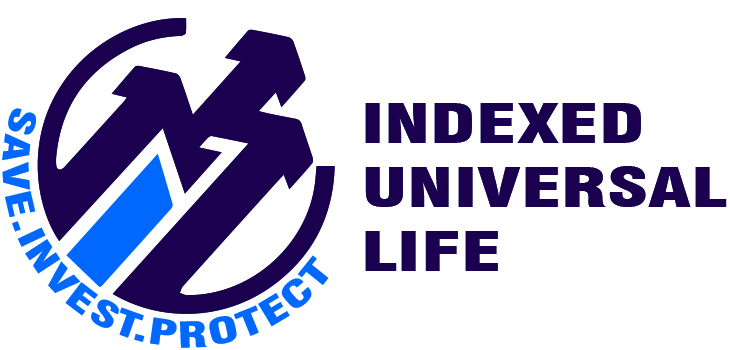IUL Reason Why
Imagine a life insurance policy that not only protects your loved ones with a death benefit but also offers the potential for cash value growth, tax advantages, and a retirement strategy for life. This isn’t just a dream—it’s a reality with Indexed Universal Life Insurance (IUL).
Benefits of Indexed Universal Life Insurance (IUL) – Essential Guide
Check out this essential guide, where we’ll explore the world of Indexed Universal Life Insurance (IUL), highlighting its benefits, comparing it to other life insurance options, and offering tips on choosing the right policy. Here’s what you can expect:
Summary:
- IUL can serve as both a savings vehicle for future needs and a secure option for retirement planning, while also offering the potential for a home loan, in addition to a lump-sum payment to your loved ones.
- With IUL, you can enjoy cash value growth linked to stock market indices, all while having lifelong capital protection.
- Indexed Universal Life Insurance (IUL) provides financial protection tailored to high-net-worth individuals, families, and businesses.
- Learn how to assess a life insurance company’s financial stability, reputation, fees, and policy options to find the best IUL policy for your needs.
- Get quotes for universal life insurance to cover yourself, your family, or key business partners.
Are you ready to discover the potential of IUL and how it can benefit you? Let’s dive in.


What is Indexed Universal Life Insurance?
Indexed universal life insurance (IUL) is a form of permanent life insurance that combines life coverage with a cash value account tied to stock market performance. As you pay premiums, the insurance company invests the funds. IUL policies grow in value when the market index you’re tracking, such as the S&P 500, rises. However, unlike other life insurance types, an IUL is structured to avoid losses when the market index falls.
Also known as equity-indexed life insurance, IUL is sometimes called jumbo life insurance due to the large death benefit it can provide.
Understanding Indexed Universal Life Insurance: To grasp IUL, it’s important to break it down into two main elements: the death benefit and the cash value component.
The death benefit is the amount paid to the policyholder’s beneficiaries upon their death. The cash value, meanwhile, is an investment element that grows over time.
The growth of an IUL is linked to the performance of a market index, such as the S&P 500 or Hang Seng, offering the potential for higher returns compared to traditional policies with fixed interest rates.
To safeguard your investment, many IUL policies offer a lifetime guarantee against stock market losses. That’s right—you are guaranteed not to experience stock market losses with an Indexed Universal Life Insurance policy throughout your lifetime.
“

Get personalized quotes — Free, No-Obligation IUL Quote: Enter Info, Calculate A Deposit In 5 Min, Talk To An Agent. It Costs $0 To Run The Numbers & Calculate A Recurring Deposit. No-Obligation IUL Estimate In 5 Min.
Indexed universal life insurance is How Does IUL Work?
At its core, an Indexed Universal Life (IUL) policy offers flexible investment options, allowing policyholders to allocate funds to an index-based strategy for potential growth linked to a major stock index. However, it’s important to note that this growth is typically capped at around 10% to 12% annually. In exchange, policyholders benefit from a “zero floor,” meaning they avoid any capital losses when the stock market declines.
Additionally, IUL policies include a minimum guaranteed interest rate to further protect the investment. Most IULs offer a guaranteed minimum interest rate of 2% to 3% per year, regardless of market performance. This means that even if the index your account is tracking returns little or no growth, the policy’s surrender value will still earn this cumulative guaranteed rate.
The policy also features a savings component, allowing policyholders to build cash value over time. This accumulated cash can be used for future needs, such as retirement planning.




Cash Value Growth Potential
One of the key benefits of IUL insurance is the potential for cash value growth. Unlike traditional life insurance policies that offer fixed interest rates on cash value, IUL links the growth of your cash account to the performance of a financial index, such as the S&P 500, allowing for the possibility of higher returns.
As the index performs well, your participation rate increases, boosting your cash value and providing an additional source of income for retirement or other financial needs.
With IUL, you can build a financial safety net while also protecting your loved ones or business partners.
And the best part?
You’re guaranteed never to experience stock market losses in an Indexed Universal Life (IUL) insurance policy for your entire life.
That’s worth repeating!
Tax Advantages
IUL policies offer significant tax advantages, making them an appealing choice for individuals looking to reduce their tax burden. The cash value growth within an IUL is tax-deferred, so you won’t owe taxes on the gains until you withdraw the funds.
Additionally, policy loans and withdrawals from the cash value are generally tax-free, allowing you to access your money without facing additional tax obligations. Furthermore, the death benefit is typically paid out tax-free.
However, depending on your country of residence, your beneficiaries may be subject to taxes on the policy’s payout. It’s advisable to consult a tax professional for guidance.
IUL Policy Withdrawals
A major advantage of indexed universal life insurance policies is the option to withdraw from the policy’s cash value. This flexibility makes IUL policies a valuable tool for retirement planning. For more details, see the section “Indexed Universal Life Insurance as a Retirement Plan” later in this article.
However, while withdrawals can be beneficial, it’s crucial to monitor the policy’s performance to ensure it can continue supporting those withdrawals. Some insurers may also restrict the amount you can withdraw without impacting the death benefit. Despite these considerations, having access to your capital is a highly appealing feature.
Policy Loans and Withdrawals
In addition to withdrawals, most indexed universal life (IUL) policies offer the option to take out a policy loan. This allows you to access your cash value for various financial needs, such as purchasing a property, paying school fees, or expanding your business.
Keep in mind that when you take a policy loan, you’re essentially borrowing from the insurance company against your own cash value. The insurer will charge interest on the loan, which you can either pay over time or let it accumulate within the policy. If you don’t repay the loan, the outstanding balance will reduce the death benefit, meaning your beneficiaries will receive less. It’s important to consider this impact before taking a policy loan.
Flexible Premiums and Death Benefits
One of the appealing aspects of IUL policies is the flexibility they offer with premium payments. As a policyholder, you have the ability to adjust your premiums to fit your financial situation and cash flow needs. Even if you underpay or skip a premium, your policy can remain active, provided the cash value is sufficient to cover the insurance costs and administrative fees. This ensures that your beneficiaries continue to receive death benefit protection, even during tough financial times.
However, it’s important to monitor the cash value balance and make adjustments as needed to avoid a policy lapse.
Understanding Policy Projections
Policy projections are crucial for understanding how an IUL policy may perform over time. These projections consider factors such as interest rates, fees, payments, caps, participation rates, and loans. While these projections can offer valuable insights, it’s important to approach them with caution. Non-guaranteed elements can be overly optimistic and may not reflect actual policy performance. Focus on the guaranteed aspects of the projection to ensure a clearer understanding of what you can expect from your policy.
Using IUL for Retirement Planning
In addition to providing death benefit protection and cash value growth, an IUL can also serve as an effective retirement planning tool. With its combination of features, an IUL allows you to accumulate wealth over your lifetime, which can then be accessed during retirement as a supplementary income source. This can help you maintain your desired lifestyle throughout your retirement years.
Estate Planning Benefits
Many high-net-worth individuals incorporate IUL policies into their estate planning strategies. The death benefit can help minimize the impact of taxes on your estate and maximize the wealth passed on to your beneficiaries. This is especially important for those with large estates who wish to leave a lasting financial legacy. An IUL can provide financial security for your family and future generations, ensuring your wealth is preserved according to your wishes.Getting IUL Insurance Quotes
Understand Your Needs:
Before requesting an IUL insurance quote, assess your financial goals. Consider how much coverage you need, whether you want income during retirement, and your comfort with investment risk. This will help you choose a policy that aligns with your objectives.
Consult a Broker:
A specialist life insurance broker can help you obtain quotes from multiple insurers, offering you a broader range of options. They provide expertise in finding the right policy for your needs.
Compare Quotes:
Once you receive several quotes, compare them based not just on premium costs but also on policy features. Consult an independent life insurance agent to help you choose the best IUL policy.
Apply for the Policy:
Complete the life insurance application and be prepared to provide personal, health, and financial information. In most cases, you’ll need to undergo a medical exam. Once the insurer reviews your application, they will make an approval decision, which could take two to three weeks.
Starting Your IUL Policy:
If approved, you’ll receive a policy illustration outlining premiums, cash value growth, and death benefits. Review the details carefully, sign the necessary documents, and make your first premium payment to activate the policy.
Comparing IUL with Other Life Insurance Policies
IUL vs. Term Life Insurance:
Term life insurance provides temporary coverage for a set period (10, 20, or 30 years) and does not offer cash value accumulation or investment options. It is more affordable and straightforward but lacks the long-term benefits of an IUL, which offers lifetime coverage and the potential for cash value growth.
IUL vs. Whole Life Insurance:
Both IUL and whole life insurance are permanent policies, but whole life offers a fixed premium and guaranteed minimum cash value growth. While whole life provides stability, IUL offers more flexibility with premiums and the potential for higher returns through index-linked cash value growth.
IUL vs. Variable Life Insurance:
Variable life insurance allows policyholders to invest cash value in a variety of assets, such as stocks and bonds, offering higher returns but with increased risk. IUL, by contrast, provides more protection by linking growth to a stock market index with a guaranteed minimum interest rate.
Risks and Considerations of IUL
While IUL policies have many benefits, they also come with risks, including policy fees, market exposure, and performance variability.
Policy Costs and Fees:
Costs like insurance charges, administrative fees, and surrender charges can impact your policy’s value. It’s important to understand these expenses before investing.
Market Exposure:
While IUL links cash value growth to a stock market index, performance can be volatile. Consider diversifying investments and carefully choosing index options.
Evaluating Insurance Companies:
When selecting an IUL policy, research the financial strength and ratings of the insurer. Compare fees, investment options, and overall performance to ensure the company aligns with your goals.
Summary
Indexed universal life insurance combines death benefit protection with the potential for cash value growth, tax advantages, and loan options. This makes it an attractive choice for high-net-worth individuals seeking comprehensive life insurance coverage. By understanding the key features and comparing IUL with other policies, you can make an informed decision that aligns with your financial goals.
FAQs
How does a life insurance policy loan work?
You can borrow against your policy’s cash value, with flexible repayment terms, though interest will accrue.
What are the benefits of IUL?
IUL offers permanent coverage, tax-advantaged growth, flexible premiums, and loan access.
Is IUL worth it?
It depends on your needs. While IUL offers potential investment gains, it can be unpredictable and costly.




